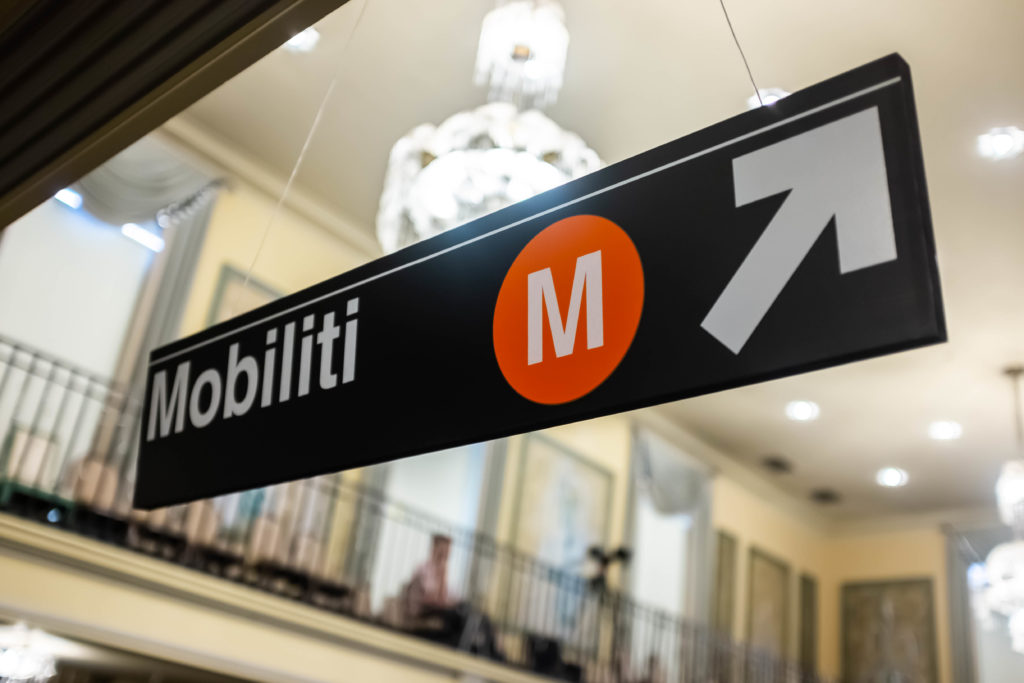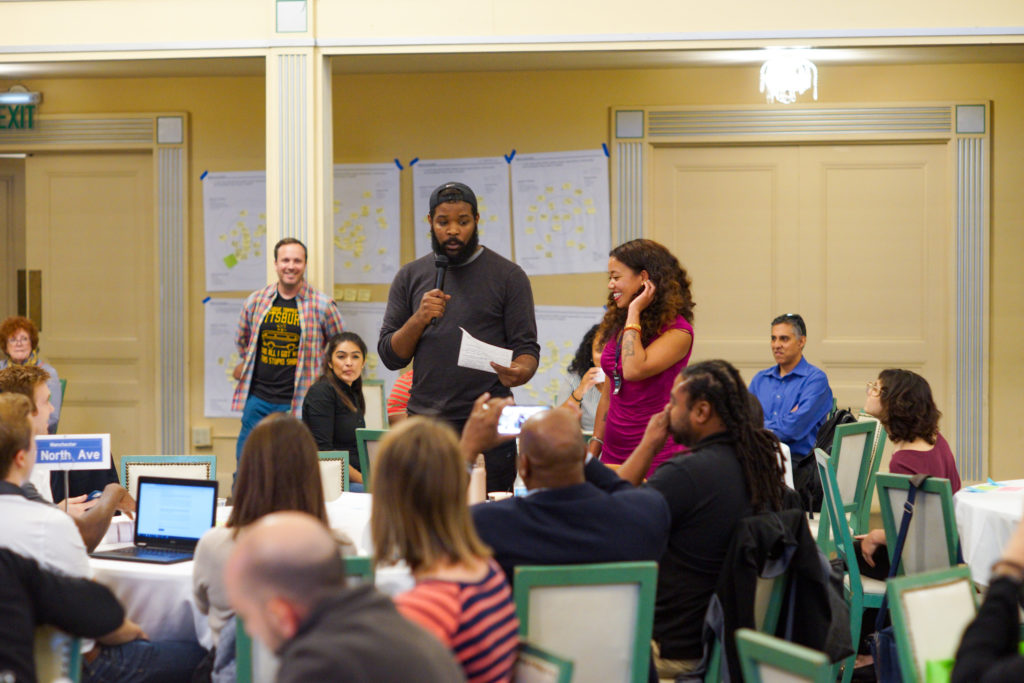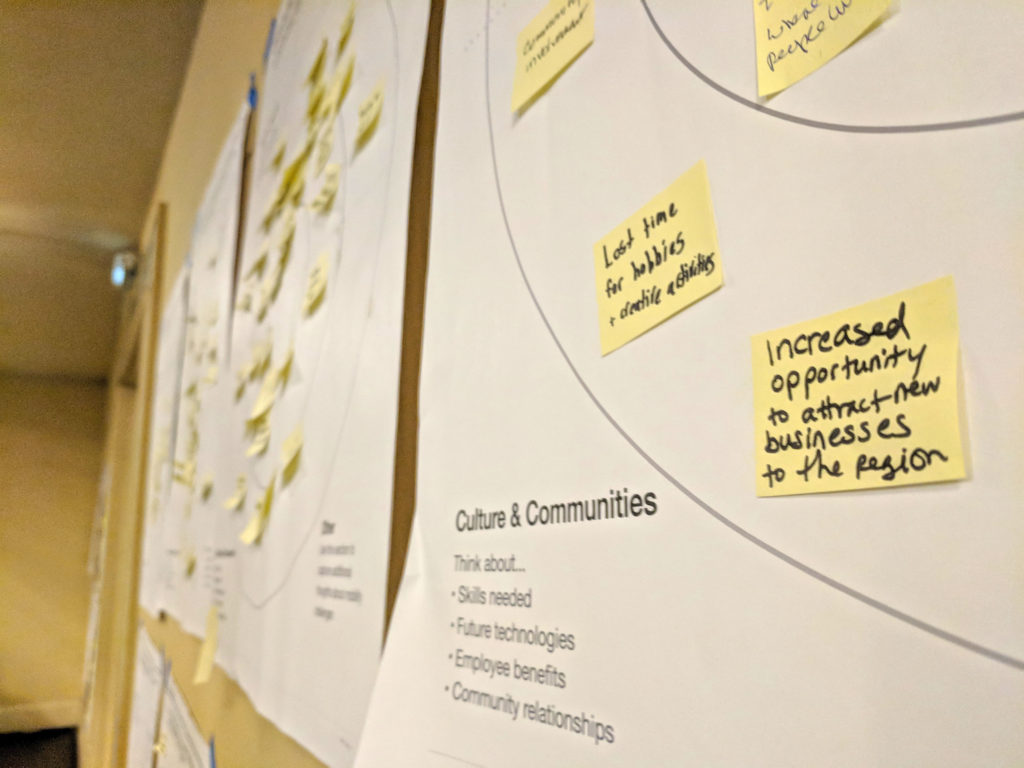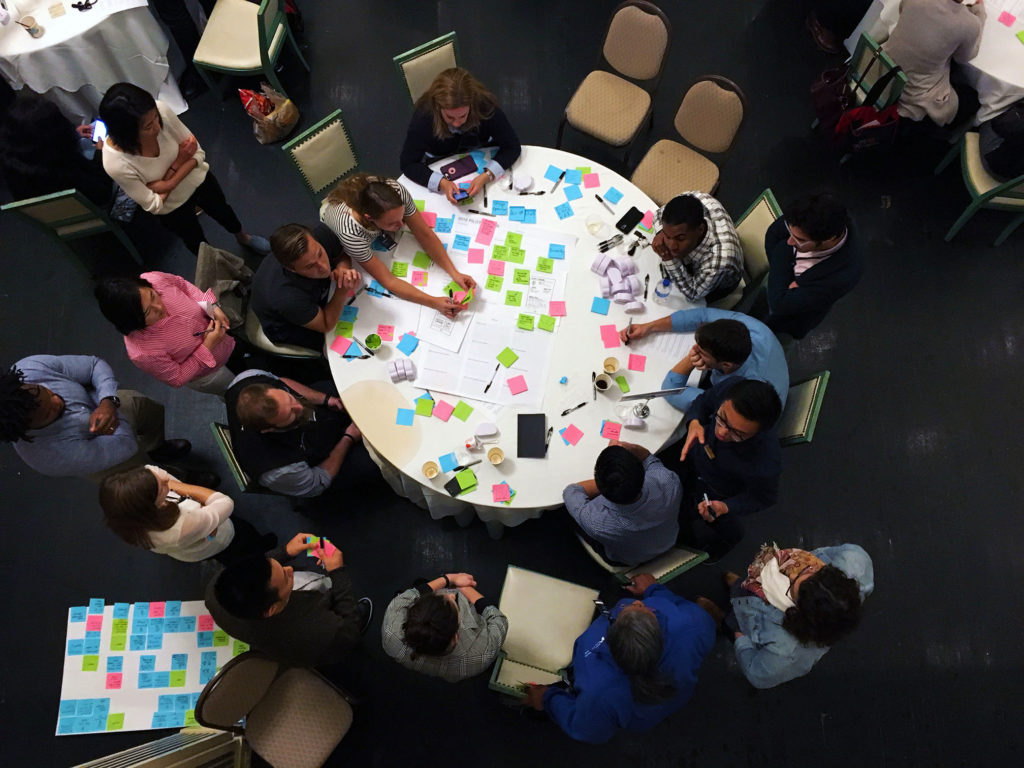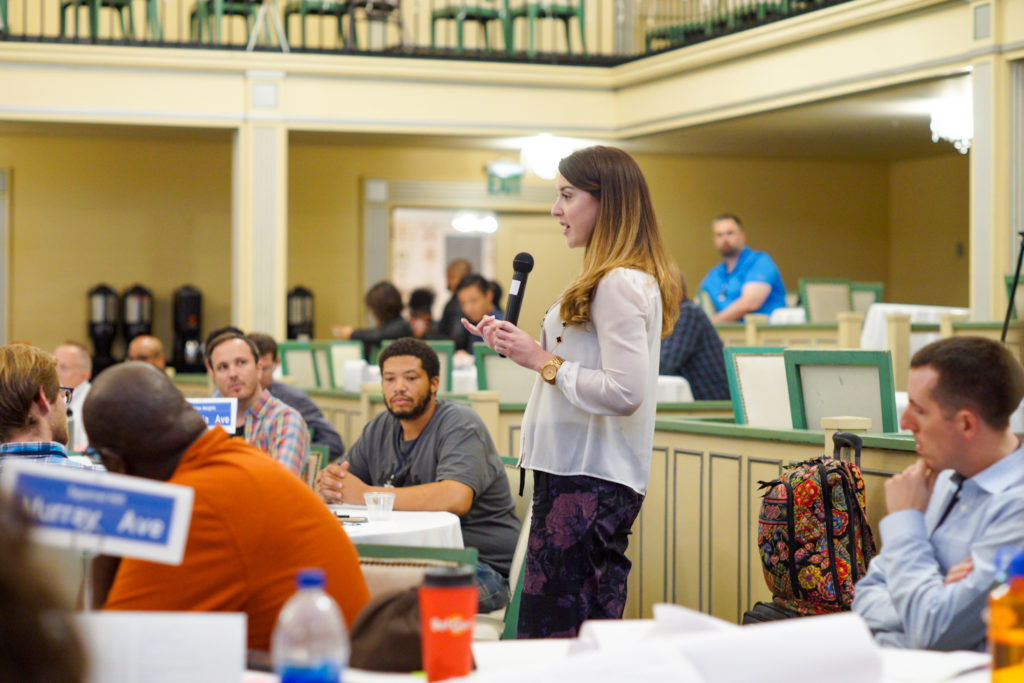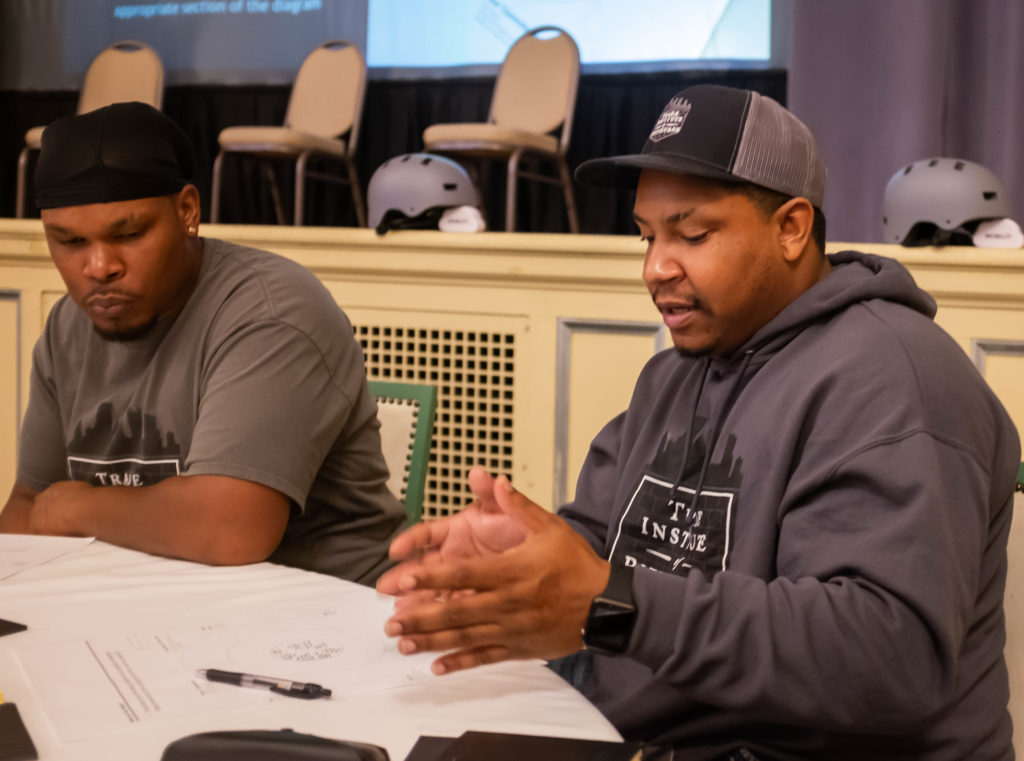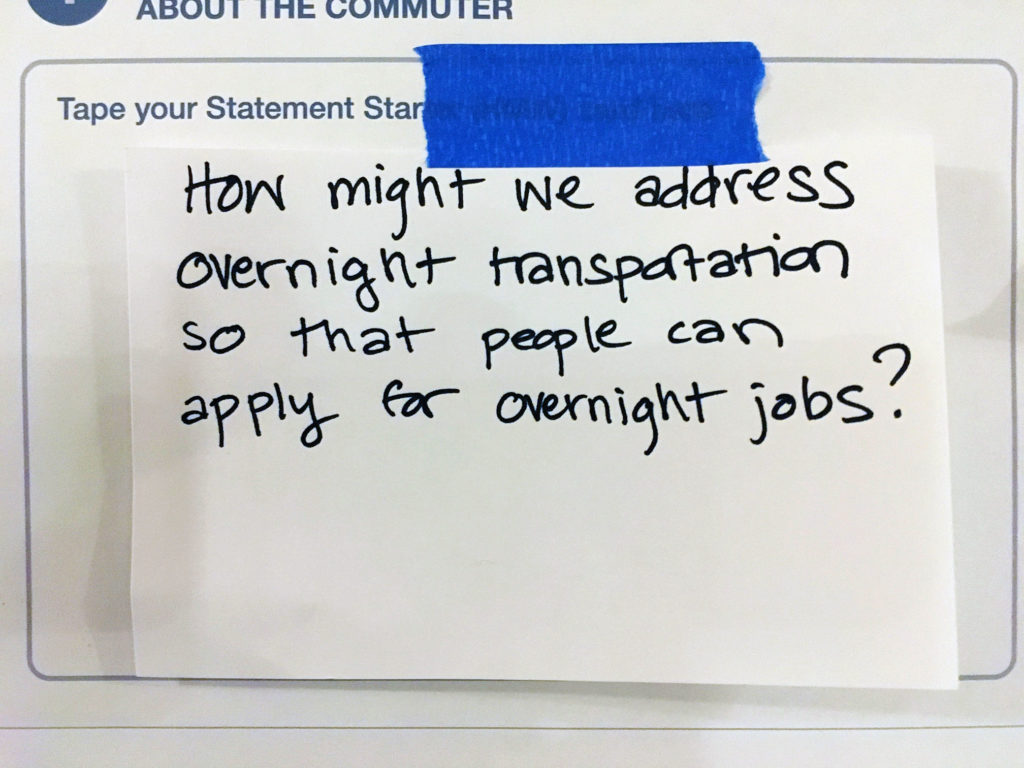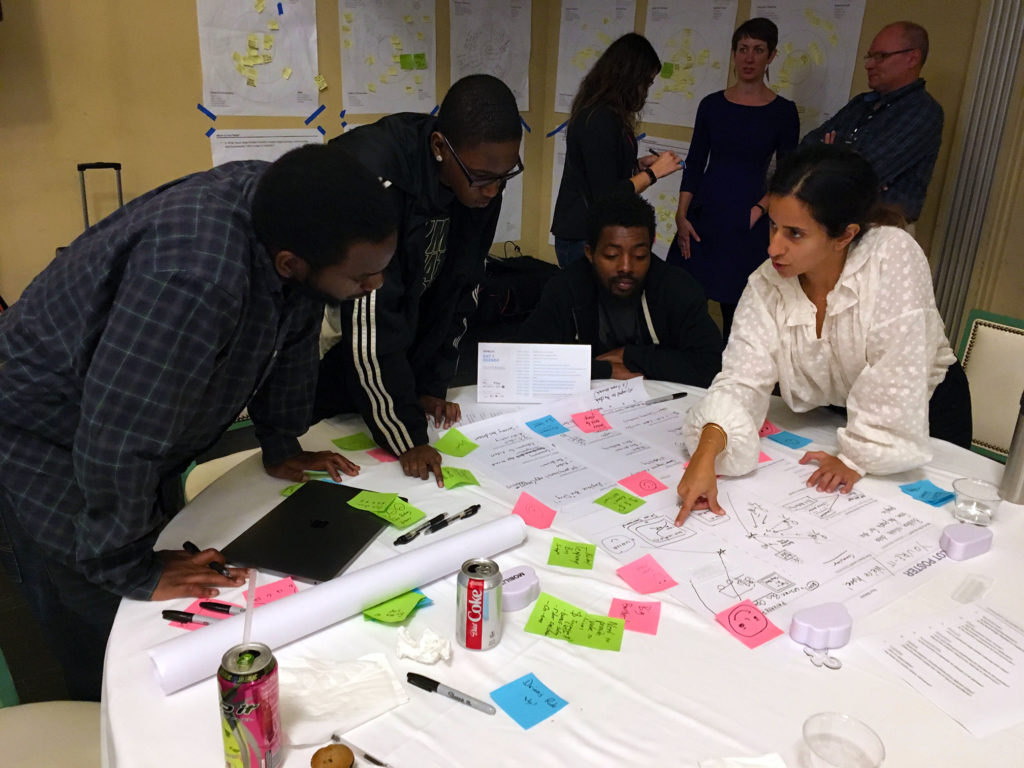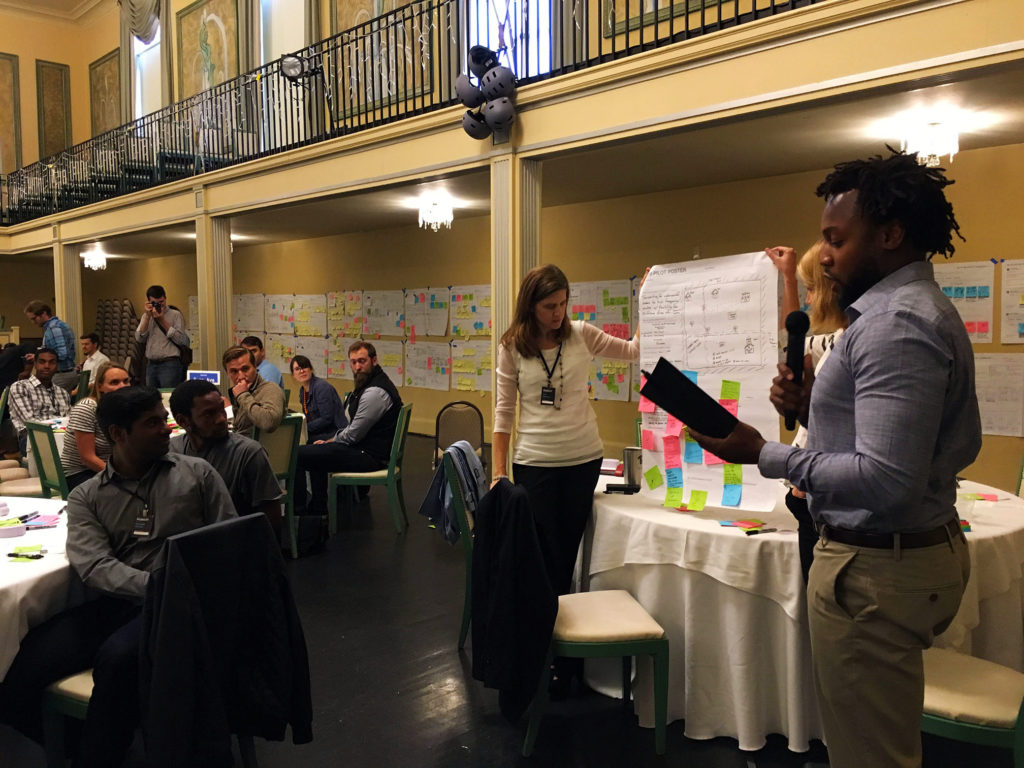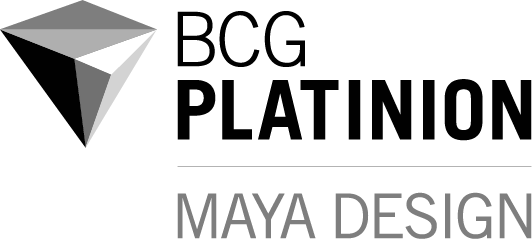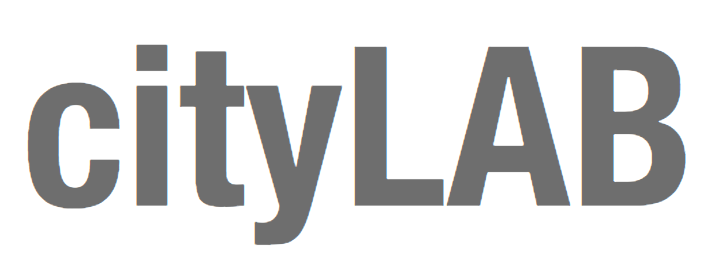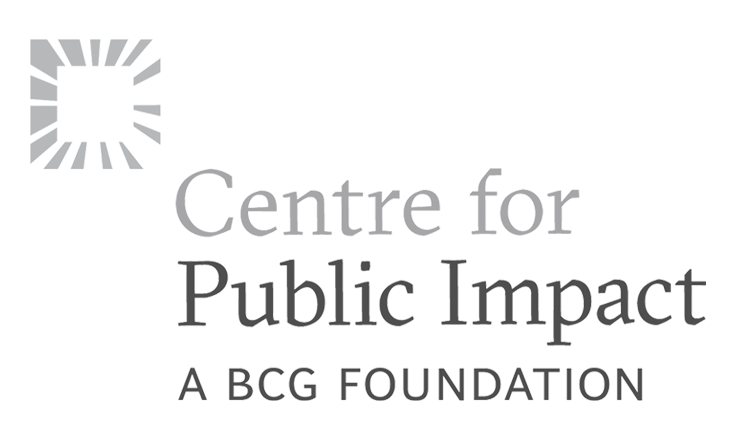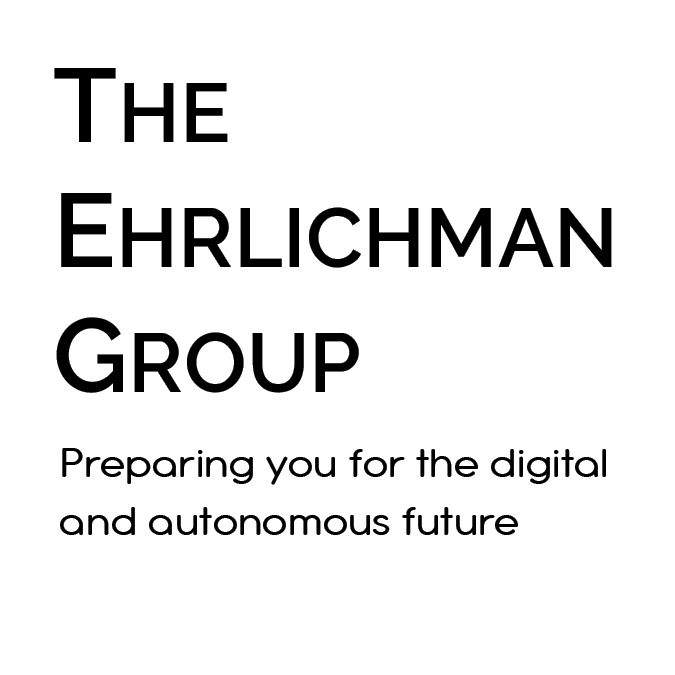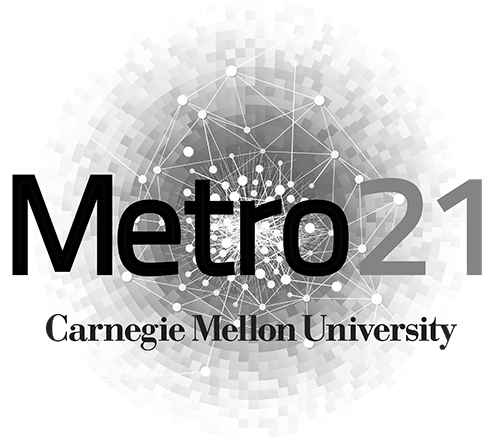Employers, residents, and technologists building actionable solutions together to get everyone moving. A first of its kind co-design session on the future of transportation.
Oct. 4th + 5th, 2018, Pittsburgh, PA.
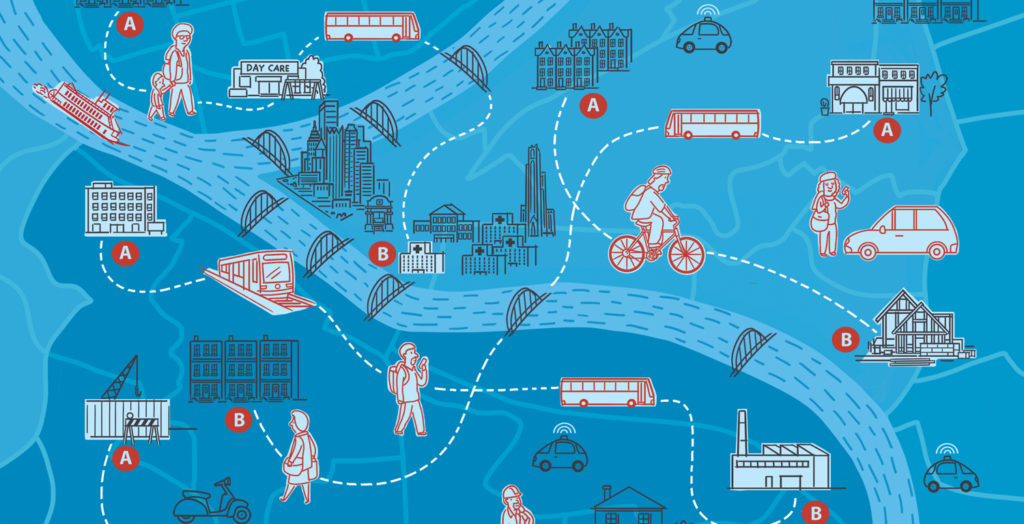
Overview
Mobiliti.us ran an inclusive co-design workshop for 200 attendees between October 3rd and October 5th, 2018, with the primary goal of closing the gap between skilled hourly workers who struggle to succeed without reliable access to mobility options, and employers who struggle to hire and retain such workers due to transportation issues. The outcome of the event itself was a curated group of pilot programs, from which several will be selected to run in 2019 with the aim of proving the return on investment for employers who invest directly in transportation options for their employees.
Results & Impact
The Mobiliti.us workshop attracted nearly 200 attendees across a two-day workshop, successfully spanning the stakeholder roles of resident, employer, civil leader, and transit provider — along with Mobiliti.us staff and co-design facilitators. The scale of this workshop can not be understated: the facilitators from BCG Platinion|MAYA Design, who regularly conduct such human-centered design workshops professionally, reported that they have only once before facilitated a collaborative event of similar size. By this measure alone, the event’s successful execution is notable on a global scale.
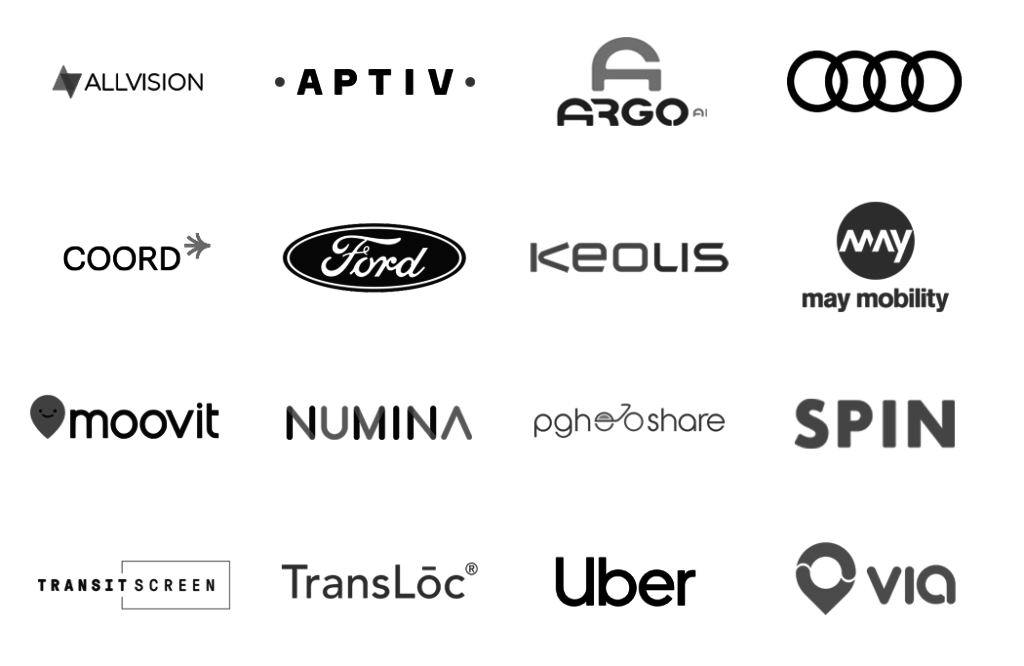

One-fifth of our attendees were low-mobility residents, for whom car ownership is a prohibitive or impossible option, and whose employability has suffered as a direct result. These residents offered attendees unprecedented insights and transparency into the limitations of public transit, the complexities of life without a personal vehicle, and its impact on families.
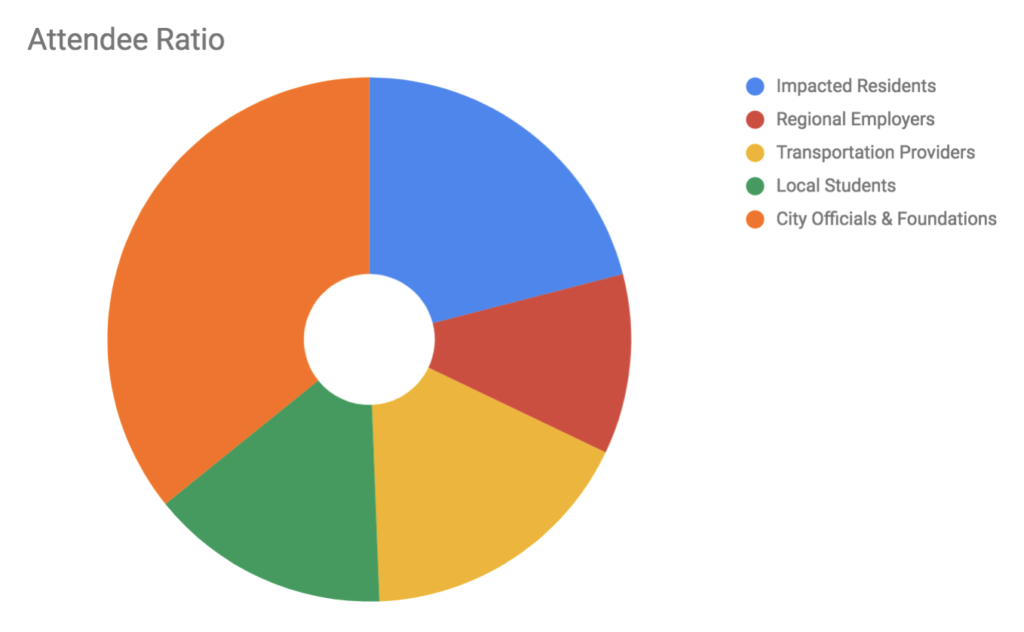
Employers in attendance included one or more representatives from Allegheny Construction Group, Builders Guild of Western Pennsylvania, Eat’n Park Hospitality Group, Ethicon, Giant Eagle, Macedonia Family and Community Enrichment Center, Massaro, Microsoft, Pitt Ohio, Pittsburgh Public Schools, PNC, Presbyterian SeniorCare Network, UPMC, and Wyndham Grand Pittsburgh Downtown. The full list of confirmed attendees can be found here.
Mobiliti.us attendees worked in cross-functional teams to generate 20 transportation design solutions, which passed through pressure testing from other attendees and subject matter experts to be presented at the conclusion of Day 2. Of those 20 prototype solutions, several will mature into regional pilot programs as a direct result of Hillman Foundation’s funding.
Additionally, nine of the prototypes were subsequently submitted to the City Of Tomorrow Challenge sponsored by Ford and the City of Pittsburgh. The Mobiliti team who designed “Safe Shift” eventually beat out more than 125 competing proposals to win the Challenge and earn $50,000 towards launching a pilot in 2019.
Full list of City Of Tomorrow Challenge entries:
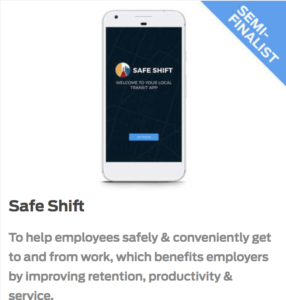
Safe Shift 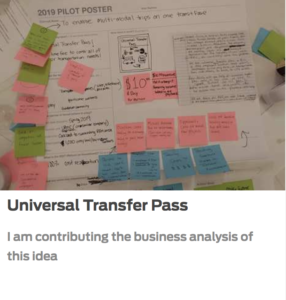
Universal Transfer Pass 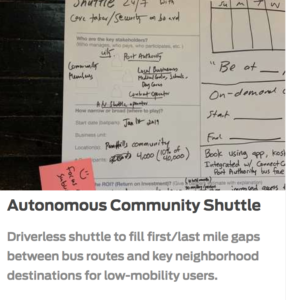
Autonomous Shuttle 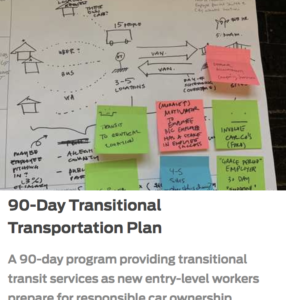
90-Day Transition Plan 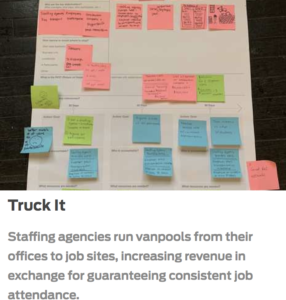
Truck It 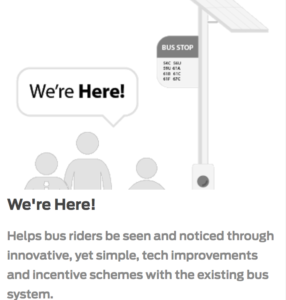
We’re Here 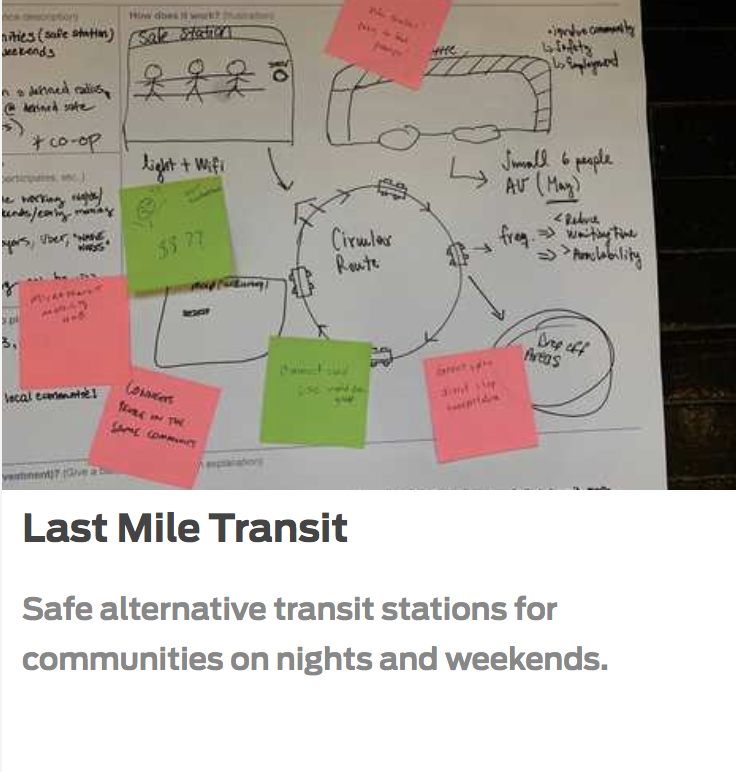
Last Mile Transit 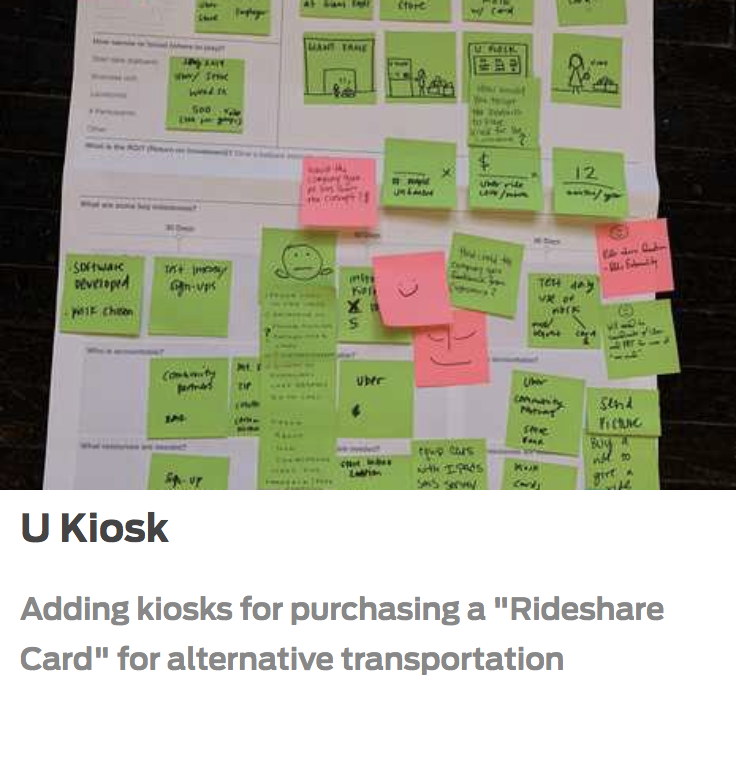
U Kiosk 
Last Mile Expansion
In our post-event survey (submitted by 33 respondents), we asked attendees to offer their perspective on the overall effectiveness of the event (1 = not effective, 5 = very effective):
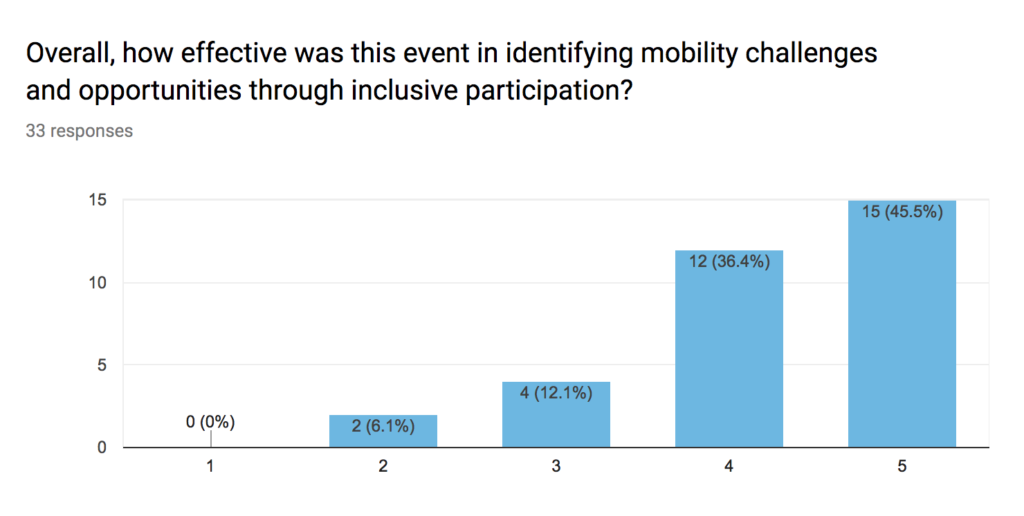
We asked attendees a similar question regarding each design activity conducted at the event:
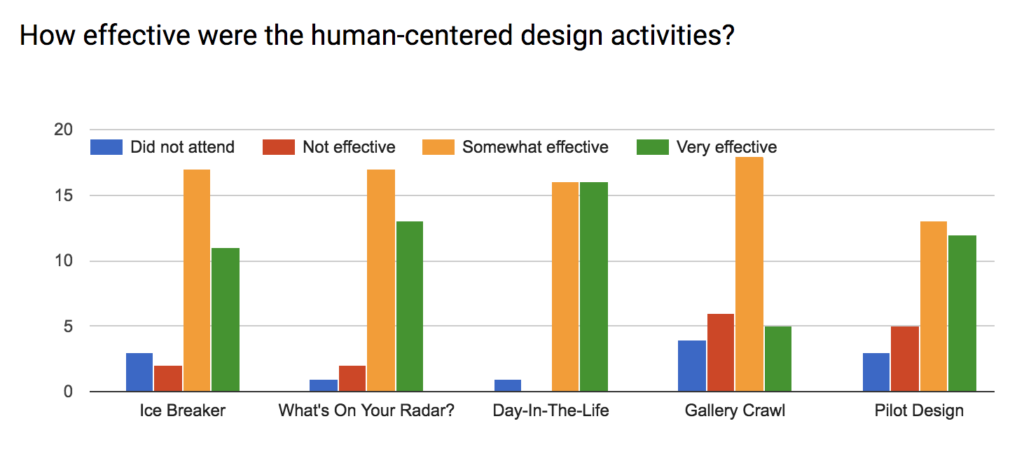
Several attendees offered qualitative feedback on the value they received from the event:
It made me acutely aware that I’ve largely been unaware of what other people’s transportation experiences are like. My own experience is only a subset of a vast array of daily challenges people face to do simple things like go to work or school. These frame our daily lives in such a profound way that I can see how transportation is not mobility or modes of movement, but access to opportunities and quality of life.
– Jennifer, NuminaI do workforce development for a living and I consider myself well versed in our region’s transportation issues, but I was floored by what the panelists had to say about their daily commutes. Their stories added a new level of complexity to what I thought I knew, as well as a sense of urgency. The pilot pitches were nothing short of inspiring. I left feeling energized and hopeful that we can really do something to tackle the mobility gap.
– Laura, Partner 4 WorkPrior to Mobiliti, I always thought of transportation from the privileged perspective of having a license and a car. “It’s important to improve public transit to get more people out of their cars and onto busses/trains.” The emphasis on moving away from private automobile use isn’t effective when considering the challenges faced by those who do not have access to a car. Mobiliti introduced me to new, personal perspectives on transportation from the people in our communities we need to focus on helping the most. Many of the solutions created at the conference will serve dual purposes – helping ALL people get around more easily and efficiently and providing more attractive transportation options for those who currently opt for other modes.
– Lauren, METRANS
Media & Coverage
Mobiliti received press coverage from NPR’s WESA and NEXTpittsburgh, in addition to the BCG press release:
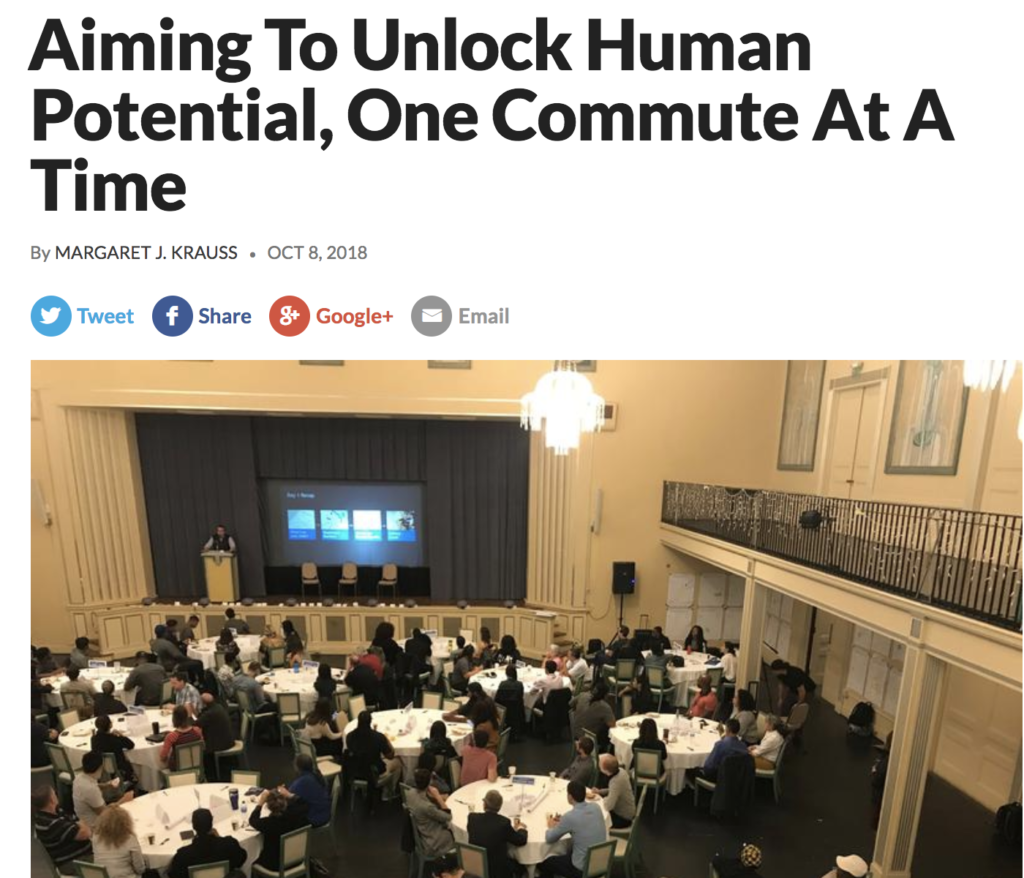
NPR/WESA Coverage 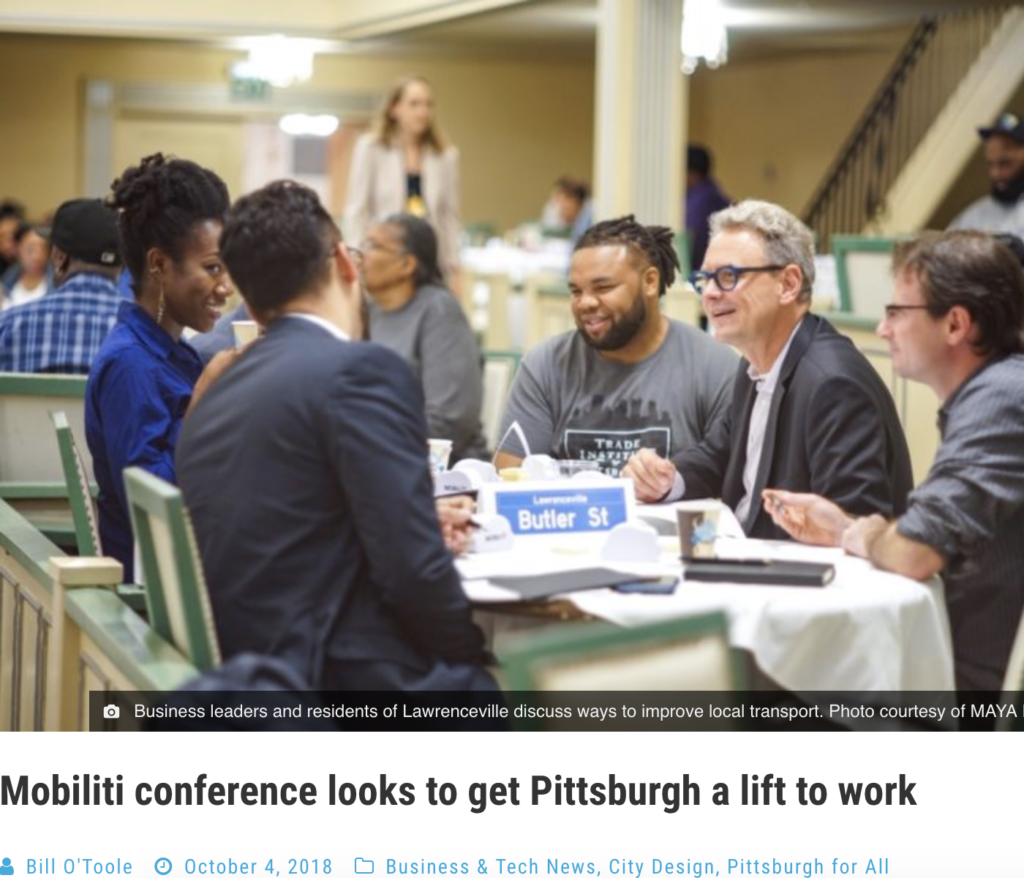
NEXTpittsburgh Coverage 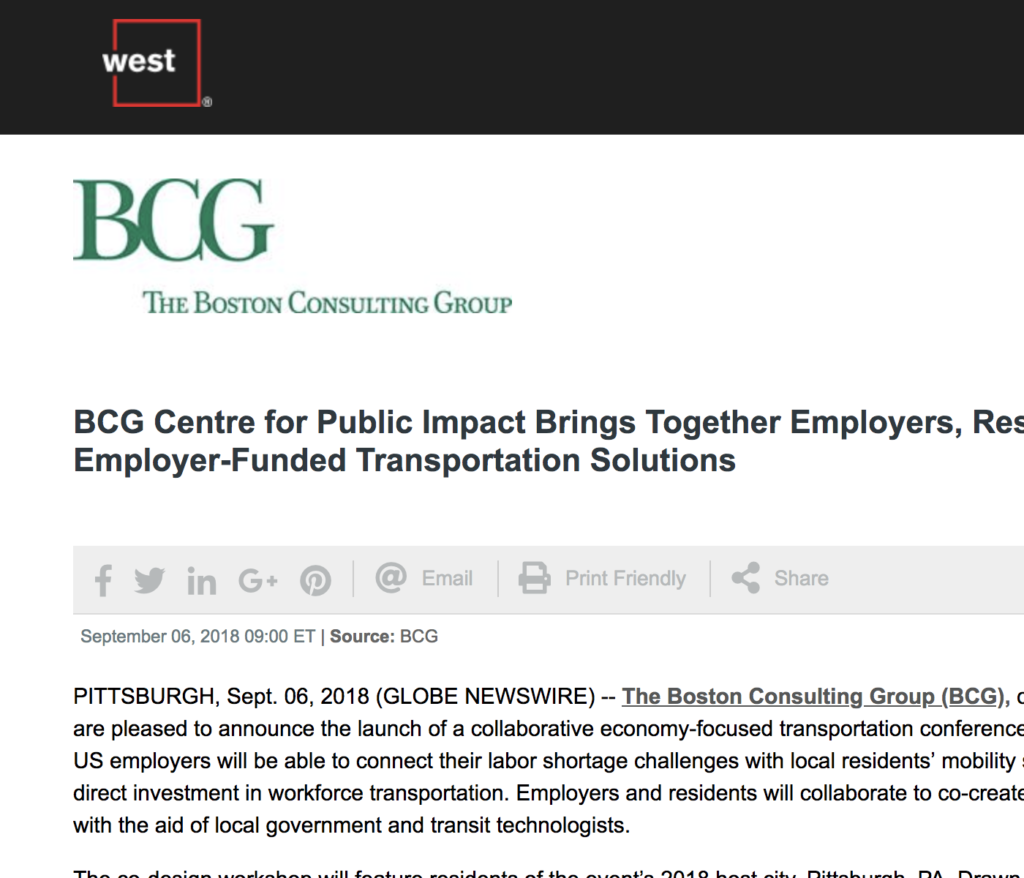
BCG Press Release
Pittsburgh’s Department of Mobility & Infrastructure produced an in-kind introductory video, sent to attendees and played on Day 1 of the event ahead of the resident panel who provided their day-in-the-life experiences on stage:
Our Twitter hashtag, #MobilitiPGH, kept a social pulse on the buzz around and during the event. Karina Ricks, Head of Mobility & Infrastructure for Pittsburgh:
Danielle Harris, Innovation Lead at San Francisco Metro Transit Authority:
Sarah Kaufman, Transportation Research Lead at NYU Rudin Center for Transportation:
Photo coverage of the event is captured on our Event Gallery page; a few of the highlights are provided here.
Challenges
The vast majority of hurdles we encountered and constructive criticism we received stemmed from the attendee:facilitator ratio, wherein high attendance demand strained the availability of BCG Platinion|MAYA Design personnel (who volunteered their time). Naturally, an event built on the principle of inclusion will encounter challenges when exclusions have to be made to the attendee list, and so our emphasis on inclusion (plus the notably high 85% attendance rate of registrants) led to some overweighting of attendees vs. human-centered design facilitators — a ratio of roughly 14:1. In an optimal version of this event, the ratio would be closer to 8:1.
While most for-profit events can solve such demand overflow by increasing ticket prices, Mobiliti’s focus on inclusion requires that potentially valuable yet cash-strapped stakeholders (community organizations, non-profits, government, local residents) have the opportunity to sit at the table. Our solution — which we recommend pursuing earlier and more aggressively for similar events in the future — was effectively a sliding scale model combined with 1:1 communication. We maintained a generic ticket price to the public, and counteracted it with targeted discount codes of varying values which we personally communicated to attendees based on their need relative to what value their presence or network offered to the event. Note this approach requires event personnel to have high-touch interactions with prospective event registrants, and so it was vital to have event management personnel who possessed the network and bandwidth to conduct such interactions effectively.
Alternatively, with a more substantial budget the attendee:facilitator ratio could be resolved by paying the facilitators, or supplementing them with volunteers who possess human-centered design facilitation backgrounds.
Toolkit For Cities
Part of the long-term value derived from the Mobiliti program is the opportunity to package up the event for other cities to use as a foundation for their own inclusive transportation co-design workshop. To that end, the activity materials provided below would afford any city with a running start:
- Presentation
- Design Activity: What’s On Your Radar
- Design Activity: “How Might We…” Prompts
- Design Activity: Concept Poster
- Design Activity: Concept Score Card
- Design Activity: Pilot Poster
- Template: Employee Turnover Costs Calculator
- Zip file containing all materials
Thank Yous
Mobiliti was hosted by:
Support for Mobiliti was provided by:
Contact Us
Questions and comments can be directed to the event producers:
Adam Paulisick: paulisick.adam@bcgplatinion-maya.com
Mitch Turck: mitch@mobiliti.us
